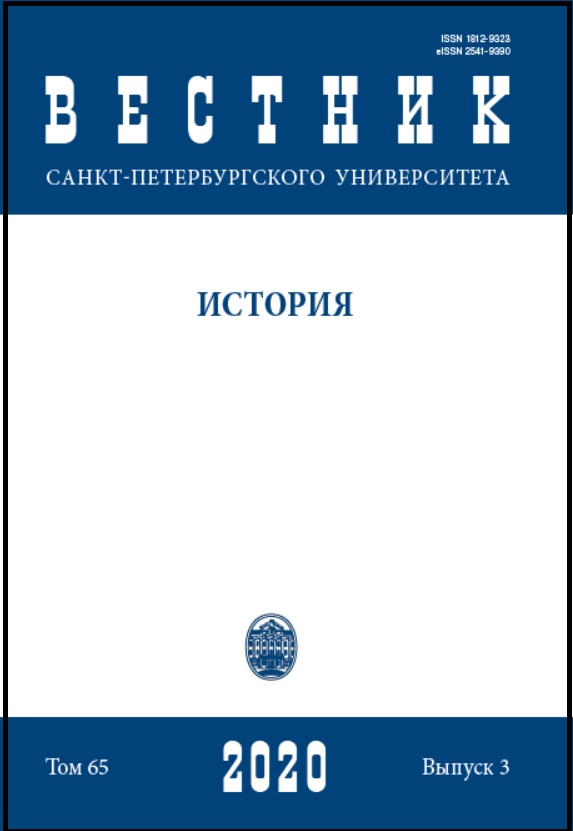The immortal host of Prince Igor
DOI:
https://doi.org/10.21638/11701/spbu02.2020.311Abstract
The attention of the author of this paper is focused on [Slovo o polku Igoreve] “The Tale of Igor’s Campaign”, a famous work of Russian literature. Before the revolution the text was included in the school curriculum and within the period of 1850-1917 it run into more than 150 separate editions. The early Soviet period saw a brief decline of the popularity of the “Tale”, but since mid-1930s the number of its separate editions started to grow and the negative or indifferent comments on Prince Igor Sviatoslavovich in Soviet encyclopedias were replaced by the favorable ones. The heroization of its characters during the Great Patriotic War also made for the popularity of the “Tale”. After the war, “The Tale of Igor’s Campaign” was effectively tapped and tapped again as a symbol of the unity of three brotherly nations – Russian, Belarusian and Ukrainian. The celebrations of different anniversaries, such as the 750th anniversary of the “Tale” and 150th anniversary of its first addition were also typical of the Soviet era. After the collapse of the Soviet Union the “Tale” has become an object of rivalry between Russia and Ukraine. Each country claims to be the only true heir of the “Tale”, actively contributing to its popularization via publications, the organization of commemorative events and the introduction of its text into school curriculums. However, further prospects of the “Tale” commemoration-wise are quite obscure – the article argues that the “Tale” (as well as many other literary works) does not constitute an effective tool for the building of national past.
Keywords:
The Tale of Igor’s Campaign, historical memory, historical policy, literary works, the Old Russian book-learning, Igor Sviatoslavovich Novgorod-Seversky, Yaroslavna, Boian, memorial places
Downloads
Downloads
Published
How to Cite
Issue
Section
License
Articles of "Vestnik of Saint Petersburg University. History" are open access distributed under the terms of the License Agreement with Saint Petersburg State University, which permits to the authors unrestricted distribution and self-archiving free of charge.





